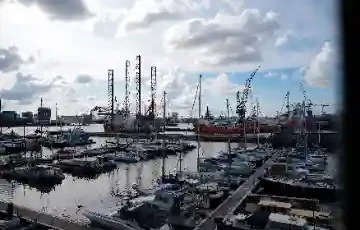ICT law encompasses legal issues arising from digital technology, software and online services. This legal field connects Dutch contract law, copyright law, IP law, privacy law and criminal law with the technical reality of information systems, cloud computing and electronic communications.
Societal dependence on digital systems has made ICT law an essential legal domain. Organizations in the Netherlands confront daily legal complexity regarding software contracts, data breaches, cybersecurity and intellectual property. The field continuously evolves through innovations such as artificial intelligence, Internet of Things and blockchain technology.
A dispute over a failed software project falls under contract law according to the Dutch Civil Code. Furthermore, copyright law applies when websites are illegally copied. Moreover, criminal law addresses computer trespass under Article 138ab Dutch Criminal Code.
What exactly is ICT law in the Netherlands?
ICT law does not constitute an independent legal code but integrates existing legal domains into the digital context. Legal professionals handle technology contracts, data protection, intellectual property rights and cybercrime within this specialized field under Dutch law.
Legal practitioners use various terms for this domain: information law, technology law, cyberlaw or internet law. These designations refer to the same concept: the legal framework for digital technology and communication. The complexity of ICT issues requires specialized knowledge combining technical understanding with legal expertise.
An ICT lawyer in the Netherlands understands technical aspects such as API connections, cloud architecture and software development. Additionally, this specialist masters legal risks concerning contracts, liability and intellectual property rights. Dutch courts annually handle hundreds of ICT disputes involving failed ERP implementations, data breaches with million-euro fines and copyright infringements on software.
Why does ICT law exist as a separate legal field under Dutch law?
Technological developments surpass the pace of legislation, creating legal gaps that traditional law cannot adequately address. ICT law bridges technical reality with legal frameworks to resolve complex digital disputes and establish clear rights and obligations.
Consider fragmented data storage in cloud computing distributed across multiple continents. Furthermore, automated decision-making by algorithms raises questions about transparency and accountability. Moreover, the Internet of Things creates liability issues for products with embedded firmware.
Netherlands courts develop continuously evolving standards for digital issues through case law addressing software failures, security breaches and intellectual property disputes. According to Article 6:248 paragraph 2 Dutch Civil Code, judges balance contractual freedom with fairness principles when evaluating ICT agreements.
Which subjects fall under ICT law in the Netherlands?
Software law and intellectual property under Dutch law
Software receives copyright protection under Article 10 paragraph 1 sub 12 Copyright Act. European Directive 2009/24/EC forms the framework for this protection, granting creators exclusive rights to reproduction, distribution and modification of their code.
The legal qualification of software regularly raises questions about ownership, licenses and transfer of rights. Freelancers, interns and external developers often retain copyrights on software they develop according to Article 2 paragraph 3 Copyright Act. Clients automatically acquire usage rights but not complete ownership. Contractual arrangements prevent disputes over who may implement modifications or commercially exploit the code.
Open source software uses specific license conditions such as GPL, Apache or MIT. These licenses contain obligations for source code publication and distribution. Violation of open source licenses leads to legal proceedings over intellectual property rights. Dutch organizations using open source components must comply with attribution requirements and copyleft provisions.
How do ICT contracts work in practice under Dutch law?
ICT contracts under Dutch law regulate delivery of software, hardware or services between parties through detailed specifications, service levels and liability arrangements. Development contracts contain agreements on specifications, delivery and maintenance under Dutch contract law principles.
A hosting agreement determines availability, backups and security measures. Moreover, an escrow agreement regulates access to source code upon supplier bankruptcy. General terms and conditions play a crucial role in ICT contracts. Suppliers often apply FENIT conditions or Netherlands ICT Conditions with extensive liability limitations. Clients use ARBIT conditions or GIBIT conditions with stricter quality and performance requirements.
Service Level Agreements under Dutch law (SLAs) define measurable performance indicators for availability, response time and recovery. An SLA specifies for example 99.5% uptime with maximum 4 hours downtime per month. Penalties for non-compliance vary from 5% to 25% of monthly contract value.
Practice example: An Amsterdam law firm concluded a contract for cloud software with an SLA of 99.9% availability. During three months, disruptions occurred totaling 8 hours downtime. The firm claimed €15,000 compensation for lost revenue and reputational damage. The supplier invoked a contractual penalty clause of €500 per incident. The court ruled the penalty adequate according to Article 6:248 paragraph 2 Dutch Civil Code, rejecting the higher damage claim.
What are the risks of cloud computing in the Netherlands?
Cloud computing transforms IT infrastructure through external storage and processing of data, creating legal risks including vendor lock-in, data loss, jurisdiction conflicts and regulatory compliance challenges under Dutch and European law.
Software as a Service (SaaS), Platform as a Service (PaaS) and Infrastructure as a Service (IaaS) offer flexibility and scalability. However, legal risks arise from vendor dependency, data loss and geopolitical tensions.
Cloud services often process personal data outside the European Union according to Article 44 General Data Protection Regulation (GDPR). The GDPR prohibits transfers to countries without adequate protection levels. The EU-US Data Privacy Framework replaced Privacy Shield, yet legal uncertainty persists following the Schrems II judgment. Standard contractual clauses and adequacy decisions provide transfer mechanisms with additional safeguards.
Continuity forms an attention point in cloud contracts. Exit provisions secure migration to another supplier without data loss. Cloud escrow constructions guarantee access to systems upon supplier bankruptcy. Dutch organizations negotiate retention periods, data format specifications and transition assistance in termination clauses.
Which privacy obligations apply to ICT in Dutch law?
The GDPR regulates protection of personal data during processing by digital systems, requiring appropriate technical and organizational measures according to Article 32 GDPR. Processing agreements impose obligations on parties processing personal data on behalf of controllers.
Processors implement encryption, access controls, logging and incident response procedures. Controllers conduct Data Protection Impact Assessments (DPIAs) for high-risk processing activities. Data breach notification duty requires organizations to report violations within 72 hours to the Dutch Data Protection Authority. Furthermore, organizations inform data subjects directly regarding serious privacy breaches under Article 34 GDPR.
Fines for GDPR violations amount to maximum €20 million or 4% of worldwide annual turnover. The Dutch Data Protection Authority issued penalties totaling €15 million in 2023 for inadequate security measures and unlawful processing. Organizations document compliance through privacy policies, processing registers and audit reports.
The ePrivacy Directive regulates protection during electronic communication. Cookie walls, tracking and direct marketing require user consent. Netherlands organizations implement opt-in systems for functional, analytical and marketing cookies with clear information about purposes and retention periods.
How does Dutch law protect against cybercrime?
The Computer Crime Act I, II and III strengthens criminal prosecution of digital crimes, establishing specific offenses for hacking, malware distribution and identity theft. Computer trespass under Article 138ab Dutch Criminal Code punishes unauthorized access to computer systems.
Penalties vary from fines to imprisonment of 6 years for serious breaches. Law enforcement officers possess digital investigation powers for intercepting communications and making illegal content inaccessible. Ethical hackers performing penetration tests may face legal risks without explicit consent from system owners.
Identity fraud, piracy and malware distribution constitute criminal offenses according to the Dutch Criminal Code. Netherlands courts annually impose dozens of convictions for cybercrime with increasing sentences. Distributed Denial of Service (DDoS) attacks receive penalties up to €87,000 or 2 years imprisonment. Ransomware deployment qualifies as extortion with sentences reaching 9 years imprisonment.
What regulates internet law within ICT law in the Netherlands?
Internet law covers legal issues arising from online activities including e-commerce, social media and search engines. Domain name law regulates registration, transfer and disputes over domain names under Dutch jurisdiction and international frameworks.
Domain grabbing and cybersquatting constitute unlawful conduct when domain names infringe trademark rights or trade name rights. Hyperlinks to infringing content may trigger liability according to case law from the Court of Justice. Web scraping without permission violates database rights and copyright on website content. Naming and shaming on complaint sites balances freedom of expression with reputation protection.
Notice and Take Down procedures according to Article 6:196c Dutch Civil Code require internet providers to remove illegal content after notification. Providers enjoy limited liability for user-generated content provided they respond adequately to reports. Dutch hosting providers remove content within 24 hours following justified complaints to avoid liability exposure.
SIDN manages .nl domain names according to a registration system based on ‘first come, first served’ principles. Parties resolve domain name disputes through SIDN dispute resolution within 2 months against €1,500 costs. International domains (.com, .org, .net) follow the Uniform Domain Name Dispute Resolution Policy (UDRP) administered by ICANN.
What obligations does an ICT supplier have under Dutch law?
ICT suppliers bear a special duty of care towards clients according to the RBC/Brinkers judgment from the Dutch Supreme Court in 1986. This duty of care under Article 7:401 Dutch Civil Code requires advice about suitability, risks and alternatives.
Violation of the duty of care leads to liability for defective implementations. Project management requires active involvement of the supplier in specification, planning and risk management. The supplier warns timely about delays, budget overruns and technical limitations. Passive attitude justifies termination and damages.
Liability limitations in general terms and conditions face judicial review for reasonableness and fairness under Article 6:233 Dutch Civil Code. Complete exclusion of liability for intent or gross negligence is void. Limitations to contract value or insured amounts typically receive judicial acceptance. Netherlands courts reject limitations below €25,000 for business contracts involving substantial implementations.
What are public procurement procedures for ICT projects in the Netherlands?
Government authorities procure ICT projects according to the Public Procurement Act 2012 and European directives. Threshold amounts determine procurement procedures: national procedures apply until €214,000, European procedures above this threshold.
Requirements for objectivity, transparency and non-discrimination protect fair competition. Functional specifications prevent vendor lock-in by imposing product-independent requirements on software and systems. EMVI criteria (Most Economically Advantageous Tender) evaluate quality, sustainability and innovation alongside price. Weighting of criteria determines the winning tender.
ARBIT conditions and BIZA model contracts provide standard frameworks for government ICT contracts. These conditions balance public interests with commercial reality of suppliers. Netherlands government organizations increasingly adopt agile procurement methods allowing iterative development and continuous feedback during project execution.
How does cybersecurity influence ICT law in the Netherlands?
The NIS2 Directive and Dutch Cybersecurity Act require essential and important entities to implement cybersecurity measures including technical protections, incident reporting and risk analyses. Supervisory authorities enforce compliance with fines up to €10 million or 2% of worldwide annual turnover.
Organizations categorized as essential entities include healthcare providers, financial institutions, energy suppliers and transport companies. Important entities encompass digital service providers, postal services and waste management organizations.
DORA Regulation specifically targets financial institutions with requirements for digital resilience and incident response. The Cyber Resilience Act (CRA) imposes security requirements on products with digital elements. Manufacturers bear lifelong responsibility for vulnerabilities in software and firmware.
Contracts distribute cybersecurity obligations between suppliers and clients. Suppliers guarantee security by design, timely patches and incident response. Clients implement access controls, backups and monitoring. Netherlands organizations conduct annual penetration tests and vulnerability scans to comply with certification requirements such as ISO 27001.
What role does artificial intelligence play in Dutch ICT law?
The EU AI Regulation (AI Act) categorizes AI systems by risk level: unacceptable, high, limited and minimal risk. High-risk AI such as credit scoring, personnel selection and facial recognition requires conformity assessment, documentation and human oversight.
Transparency obligations apply to chatbots and deepfakes so users recognize interaction with AI. Prohibited AI applications include social scoring systems and emotion recognition at workplaces or schools.
Liability for AI decisions rests with the organization deploying the system according to general principles in the Dutch Civil Code. Developers of AI systems bear product liability for defective algorithms. Insurance covers specific AI risks against premiums from €2,500 annually. Netherlands courts evaluate AI liability cases using traditional negligence standards adapted to automated decision-making contexts.
What are dispute resolution methods for ICT conflicts in the Netherlands?
Alternative Dispute Resolution (ADR) offers faster and cheaper dispute settlement than civil procedures. The Foundation for Automation Dispute Resolution (SGOA) in Heemstede organizes arbitration, binding advice and mediations for ICT disputes in the Netherlands.
The Netherlands Arbitration Institute (NAI) in Rotterdam handles complex international ICT cases. Arbitration procedures deliver binding decisions within 6 to 12 months with limited appeal options. Costs amount to €15,000 to €50,000 depending on dispute value and complexity. Mediations succeed in 65% of cases with solutions satisfying both parties.
Rapid Conflict Resolution at SGOA combines elements of mediation and arbitration for quick decisions within 3 months. Expert reports by members of the Dutch Professional Association for Sworn IT Experts (NVBI) support courts on technical aspects. Technical expertise proves crucial in disputes over software defects, security breaches and system performance.
How does domain name law work in the Netherlands?
SIDN administers .nl domain names according to a registration system based on ‘first come, first served’ principles. Parties resolve domain name disputes through SIDN dispute resolution within 2 months against €1,500 costs under specific Dutch procedures.
International domains (.com, .org, .net) follow the Uniform Domain Name Dispute Resolution Policy (UDRP). Bad faith in domain registration justifies transfer when the domain name is identical or confusingly similar to a trademark and the holder has no legitimate interest. Domain grabbers pay damages up to €10,000 per domain name plus legal costs.
Pledges and attachments on domain names follow the regime for property rights. Bankrupt businesses lose domain names to the trustee unless third parties demonstrate separate rights. Netherlands courts recognize domain names as transferable property rights subject to execution and foreclosure.
How does data governance protect business data in Dutch law?
The Data Governance Regulation (DGA) facilitates voluntary data sharing between organizations through data intermediaries. The Data Act requires manufacturers of IoT devices to make data available to users and independent service providers under EU legislation applicable in the Netherlands.
Contractual restrictions on data sharing are void when they hinder reasonable access. Database Law protects investments in data collections representing substantial qualitative or quantitative investments. Protection lasts 15 years from completion with possibility of extension upon substantial modifications.
Trade secrets and know-how receive protection under the Trade Secrets Directive against unlawful acquisition and use. Non-disclosure agreements (NDAs) impose contractual obligations with penalties up to €50,000 per violation. Netherlands organizations include data ownership clauses in supplier agreements specifying rights to raw data, processed data and analytical insights.
What are telecommunications regulatory obligations in the Netherlands?
The Telecommunications Act ensures accessibility and quality of telecommunications facilities. Net neutrality prohibits internet providers from slowing down or blocking specific services under Dutch implementation of EU regulations.
Rates for internet access services may not depend on applications used. Roaming Regulation (EU 2015/2120) eliminates surcharges for mobile use in other EU member states since 2017. Consumers pay domestic rates during stays abroad. Fair use clauses prevent structural use of cheaper foreign subscriptions.
Spam prohibition and the do-not-call register protect consumers against unwanted commercial communications. Organizations pay fines up to €450,000 for violating opt-in requirements for marketing messages. The Dutch Authority for Consumers and Markets enforces telecommunications regulations with investigation powers and sanction authority.
Do you have legal questions about ICT contracts, cybersecurity or privacy protection? Our specialized lawyers in the Netherlands analyze your situation and advise on contract strategies, compliance obligations and dispute resolution. Technological innovation requires legal certainty in a rapidly evolving digital landscape.
Which developments are approaching ICT law in the Netherlands?
Quantum computing threatens current encryption standards within 10 to 15 years. Post-quantum cryptography requires migration of security systems against costs up to €500,000 for medium-sized organizations under emerging security standards.
Legislation will impose minimum security requirements on critical systems. Blockchain technology demands legal frameworks for smart contracts, distributed databases and cryptocurrency. Liability distribution for autonomous contract execution remains unclear. Dutch case law must develop standards for this new contract form.
Metaverse platforms create legal questions about virtual property, cross-border law enforcement and copyright on digital creations. International harmonization lags behind technological development. Netherlands courts face challenges establishing jurisdiction and applicable law for disputes in virtual environments.









